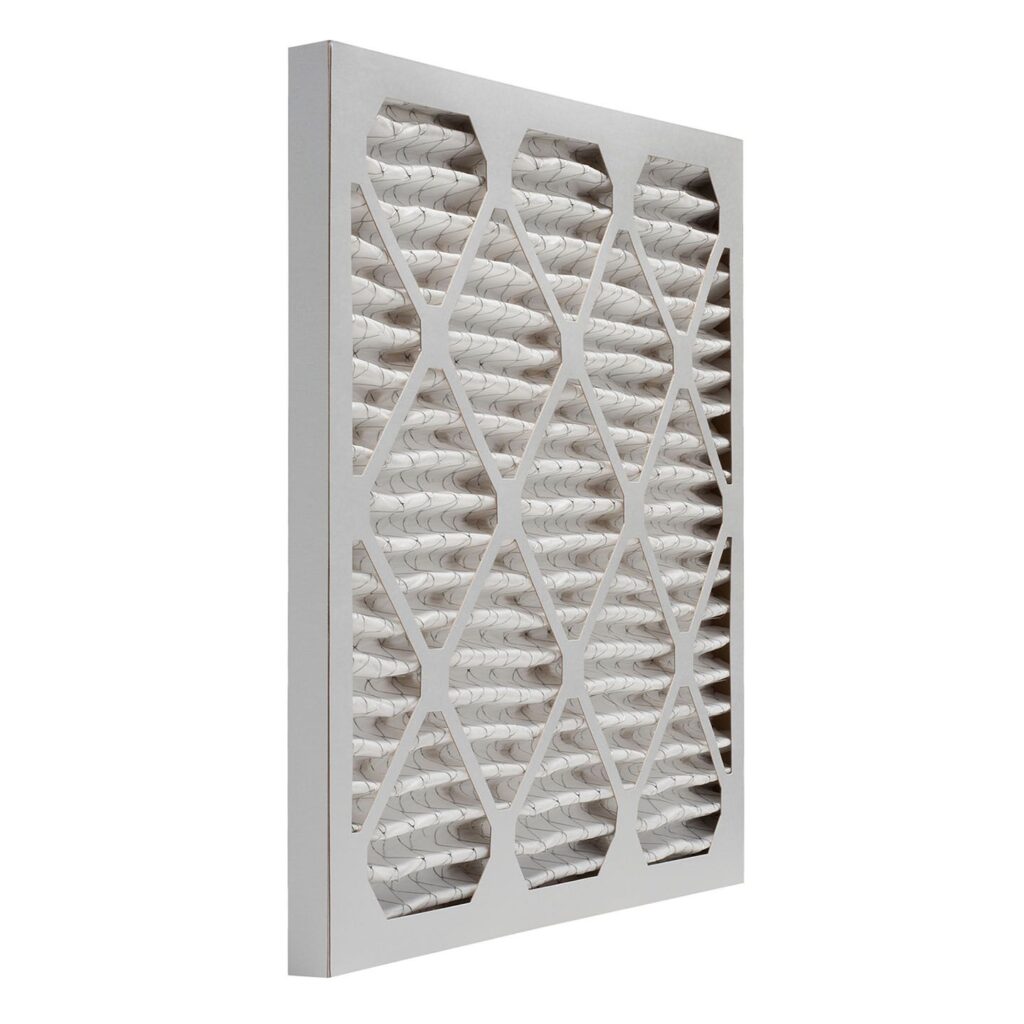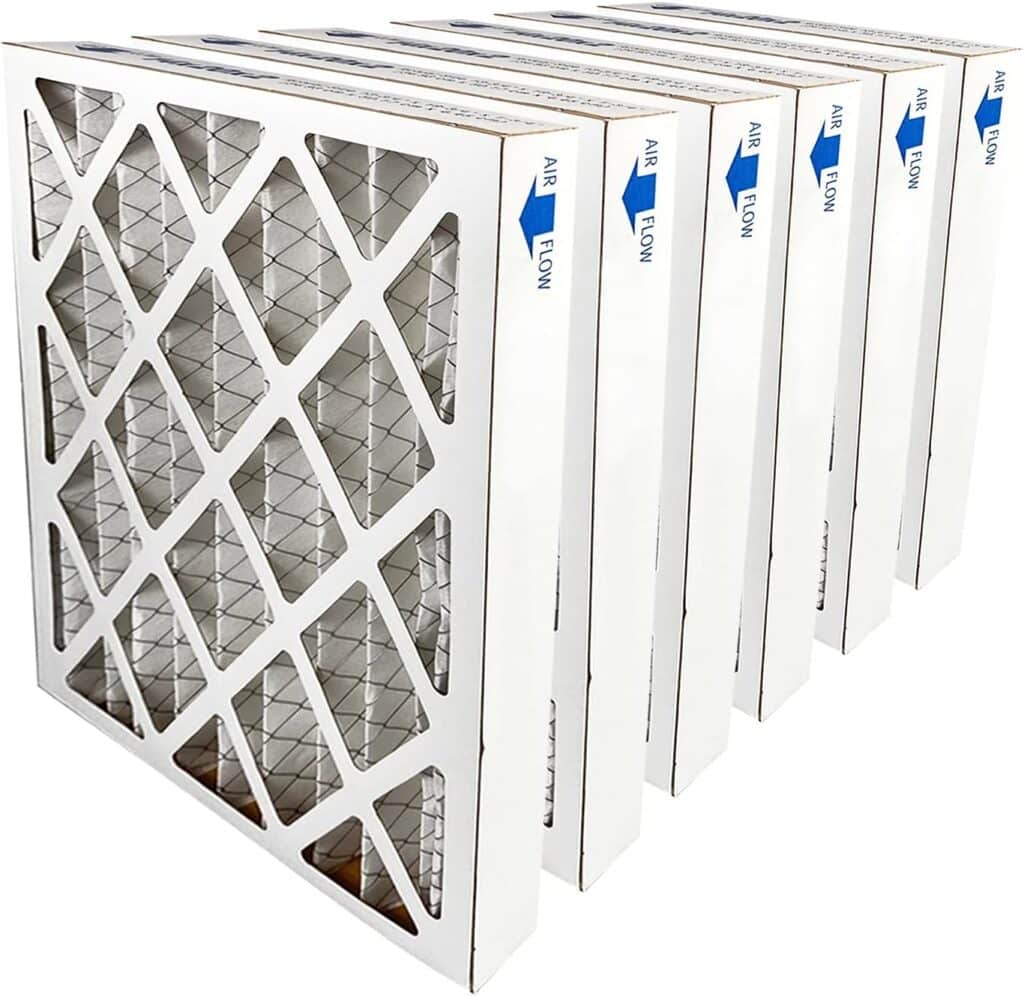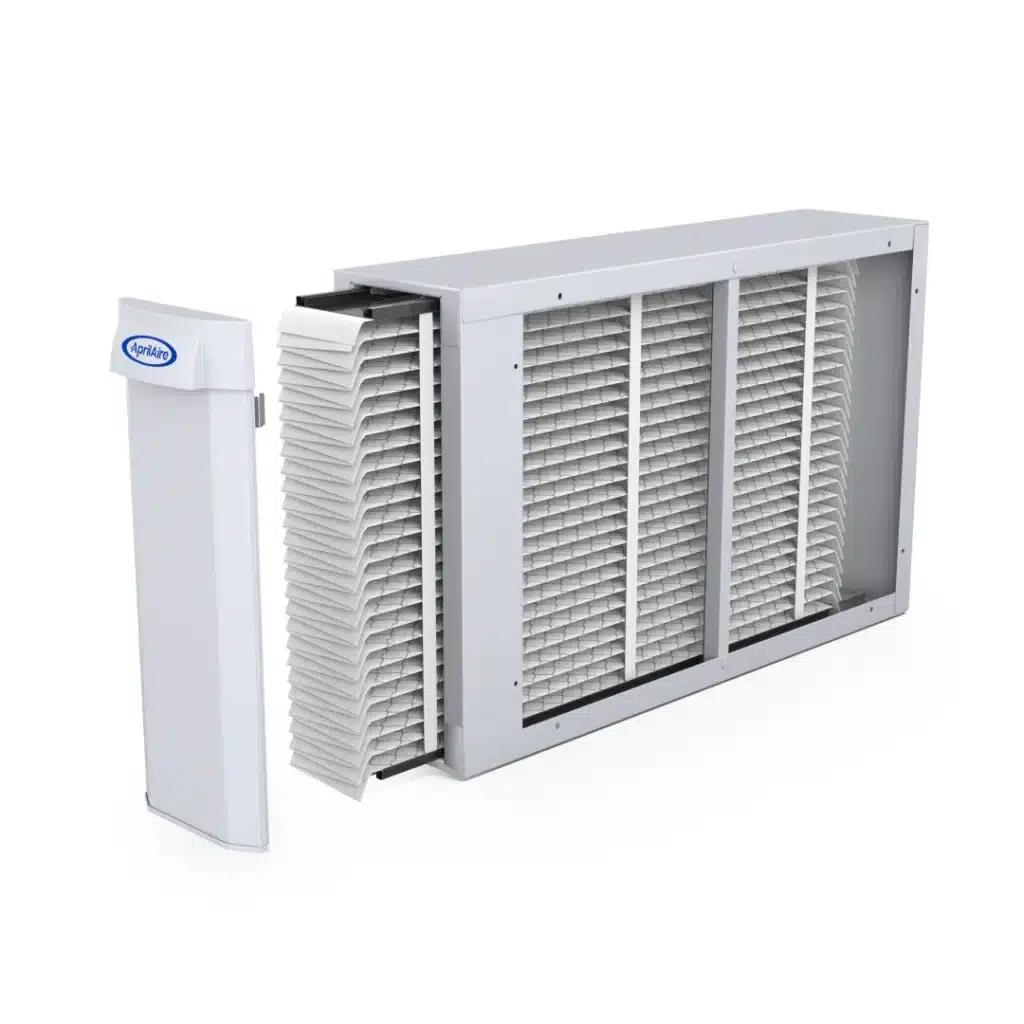In this article…
- What Type Of Filters Do You Have And How Often Should They Be Replaced?
- Benefits Of Regularly Replacing Your Air Filters
- Maintaining Your HVAC System To Improve Air Quality And System Longevity
Have you noticed an increased amount of dust in your home? Do your allergies worsen when your AC turns on?
These could be signs that your air filters need replacing.
Your HVAC air filters are the first line of defense against allowing excess dirt, dust, and debris to circulate into your home’s air.
When filters become blocked and build up with microscopic particles around your home, they find their way into your HVAC system and continue to pollute your home.
So, how often should you replace your air filters? What are some signs it’s time to replace your filter? These are the simple questions we will answer in this article.
As a San Antonio AC maintenance expert since 1979, Wright Home Services has been committed to being the #1 educator for homeowners and businesses across the city for all things HVAC, from replacing your filters to finding the right AC company for you.
Replacing your filters is one of the easiest services any homeowner can perform to upkeep their HVAC systems and maintain their home’s indoor air quality. Knowing how often you should replace your filters is the first step.
This article will dive into the different types of air filters, how often each type should be replaced, and best practices to maintain your HVAC system and your home’s air quality.
Then, you’ll have the right schedule and knowledge in place to regularly replace your filters and why and ensure your filters are keeping your home’s air clean.
What Type Of Filters Do You Have And How Often Should They Be Replaced?
Did you know there are different types of air filters? It’s true.
The type of air filters you have around your home determines how long they last before needing replacing. Before answering the question, ”How often should you replace your air filters?” you first must know what type of filters you have and where they are located.
There are three common types of HVAC air filters: 1-inch, 2-inch, and media filters. These filters can be located either at the receiver, also commonly referred to as receiving/return vents, or at the base of the HVAC unit, whether horizontal or upflow.
Let’s look at how often each type of filter must be replaced and why.
How often should 1-inch air filters be replaced?
1-inch filters are the most common type of filter most homeowners have. With a 1” thickness, they vary in length and width, from 12” x 24”, 20” x 20”, 14” x 24”, or whatever size receiver/return you have.
Because 1-inch filters are on the smaller end for thickness, they must be replaced more often. The thinner the filter, the quicker it collects dust and debris.
It is recommended that 1-inch filters are replaced once a month or every 30 days to ensure healthy indoor air quality (IAQ) and keep your system running efficiently.

1-inch air filter. Photo Credit: Discount Filter Store
How often should 2-inch air filters be replaced?
2-inch filters are the next most common type of air filter with a thickness of 2 inches. Like 1-inch filters, 2-inch filters also come in various sizes to fit your receiver/return.
These filters have a longer lifespan than 1-inch filters because of the added thickness. This allows the filter to collect more dust, dirt, and debris circulating in your home for longer.
2-inch filters can last up to 60 days, or about twice as long as a 1-inch filter for optimal filtration.

2-inch air filters. Photo Credit: Amazon
How often should media filters be replaced?
Media filters are a different type of filter than standard 1-inch or 2-inch filters encased by a cardboard frame. Media filters are typically held together with a metal frame with filtration about 4-5 inches thick, allowing for high filtration through your receiving/return vents.
This type of filter is a large upgrade from a standard 1 or 2-inch filter, meaning it lasts longer and filters your air better.
Typically, media filters should be replaced once every 6 months, though you can probably stretch its lifespan and only replace it every 9-12 months depending on your HVAC usage.

April Aire media filter. Photo Credit: April Aire
Other Factors That Affect Air Filtration Lifespan
While the type of filter is the biggest factor that affects how long an air filter lasts, there are a few other determinants to consider, like
- Location of the filter: Filters can be located at the receiver/return or at the base of the HVAC unit.
- HVAC usage: The more you run your HVAC unit, the more air circulates through your filters. This may mean you need to replace your filters more often as they collect more dust and dander than other homes.
- How many pets you have: The more furry friends that live in your home, the more dander, dust, and fur in your air. The more dander, the more regularly you’ll have to replace your filters.
- Cleanliness of the home: If you’re someone who dusts and vacuums your home every day, you may not need to replace your filters as often. Finding other ways to reduce the amount of air pollutants is one way to increase the lifespan of your air filters.
Checking on the status of your filter when a replacement is due will indicate whether you need to replace it or not.
If your 1-inch filter has been in your receiver for 30 days but still looks brand new, you can probably wait another few weeks before checking the wear and tear again.
Overall, maintaining a regular schedule to check and change your filters ensures your home has high air quality and keeps you comfortable.
Benefits Of Regularly Replacing Your Air Filters
You understand the purpose your air filters provide for a healthy HVAC system, but how do maintaining and replacing your filters really affect you and your home?
Regularly replacing your filters allows for
- Cleaner air
- Reduced dust and allergens in the home
- Improved indoor air quality
- Better filtration and a more efficient system
Making sure your filters are up to date and not cluttered with dust is one of the simplest maintenance tasks to keep your HVAC system running.
It’s important to remember how small maintenance affects the overall efficiency of the system. The better you take care of your HVAC with proper care, the better it functions, and the longer it will last.
Maintaining Your HVAC System To Improve Air Quality And System Longevity
Now that you know how often your air filters should be replaced, what factors affect the longevity of your filters, and the benefits of regularly replacing your filters, you have a better understanding of how your filters affect your HVAC system and the importance of maintaining your filters.
Replacing your 1-inch filters every month, 2-inch filters every 60 days, and media filters every six months to a year ensures your home is continuously filtered and air quality is maintained.
As a trusted San Antonio HVAC expert since 1979, Wright Home Services is here to educate you and provide you with all the necessary information regarding your HVAC system.
While replacing your filters is one of the easiest ways to maintain your HVAC system, there are many other, simple tasks to perform to improve the efficiency of your system, including rinsing the exterior system, cleaning the drain lines, and more.
Check out this article that outlines seven tips to maintain your HVAC system, especially during the summer, to keep your system running efficiently and avoid potential problems.
Then, along with replacing your filters, you’ll be equipped with the best tips from HVAC experts to properly maintain your system for years.

